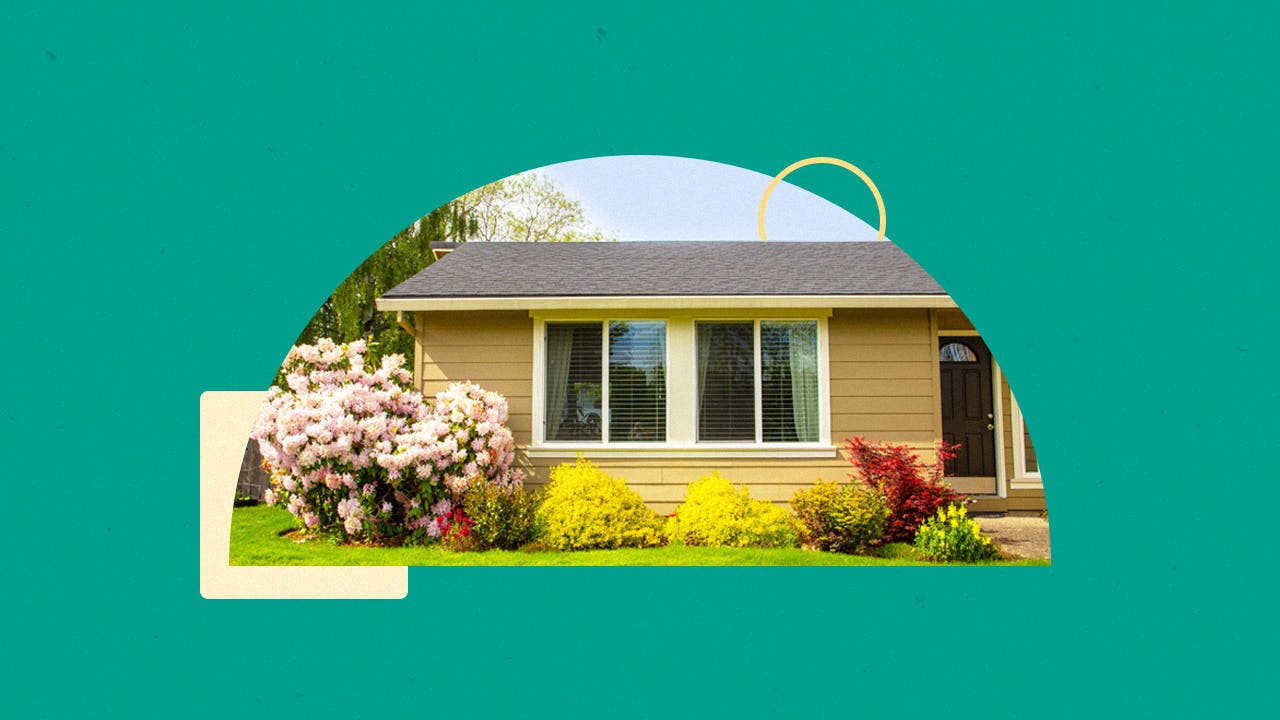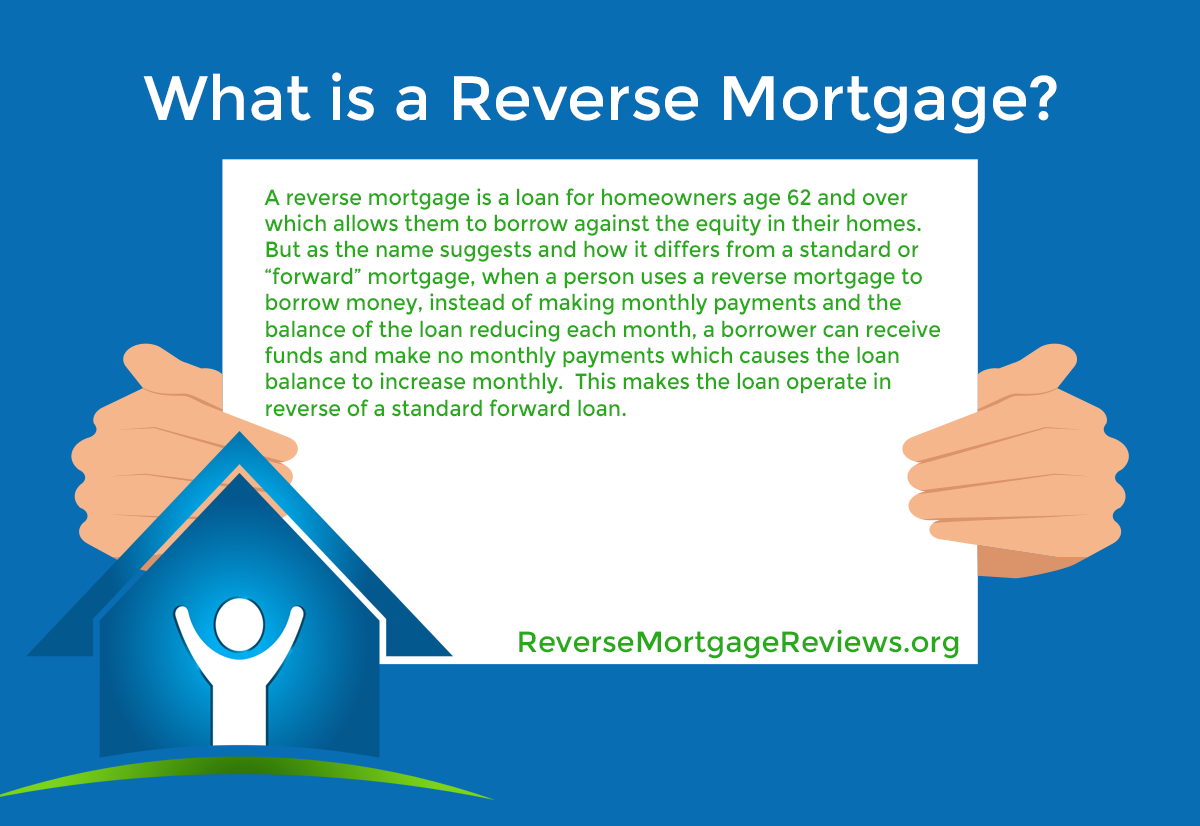The Process Involved When You Decide to Purchase Reverse Mortgage
The Process Involved When You Decide to Purchase Reverse Mortgage
Blog Article
Unlock Financial Flexibility: Your Overview to Getting a Reverse Mortgage
Recognizing the complexities of reverse home loans is important for homeowners aged 62 and older looking for financial freedom. This distinct financial tool makes it possible for seniors to take advantage of their home equity, changing it into easily accessible cash money for different needs, from health care to lifestyle improvements. Browsing the qualification prices, advantages, and requirements can be intricate. As you consider this choice, it is essential to comprehend not just how it functions yet additionally the implications it might carry your economic future. What are the essential factors you should evaluate prior to making such an impactful choice?
What Is a Reverse Home Loan?

The basic appeal of a reverse home mortgage lies in its possible to improve monetary versatility throughout retirement. Property owners can use the funds for numerous purposes, including clinical expenses, home renovations, or daily living prices, thus providing a safeguard throughout a critical point of life.
It is necessary to understand that while a reverse mortgage enables raised cash circulation, it also reduces the equity in the home in time. As passion collects on the superior lending balance, it is important for potential consumers to carefully consider their long-term economic plans. Consulting with an economic expert or a reverse home mortgage professional can supply important insights into whether this choice aligns with an individual's financial goals and situations.
Qualification Requirements
Recognizing the eligibility requirements for a reverse home loan is important for homeowners considering this monetary choice. To certify, applicants should go to the very least 62 years of ages, as this age criterion enables senior citizens to gain access to home equity without month-to-month mortgage settlements. In addition, the property owner must occupy the house as their key dwelling, which can include single-family homes, certain condos, and made homes meeting particular guidelines.
Equity in the home is one more important requirement; property owners usually need to have a substantial quantity of equity, which can be determined with an evaluation. The quantity of equity available will directly affect the reverse home loan amount. Furthermore, candidates need to demonstrate the ability to maintain the home, consisting of covering residential property tax obligations, property owners insurance, and upkeep expenses, ensuring the property remains in excellent condition.
Furthermore, possible borrowers should undertake a monetary evaluation to evaluate their earnings, credit report, and total monetary situation. This assessment helps lending institutions determine the applicant's ability to meet recurring commitments connected to the property. Satisfying these needs is essential for securing a reverse home loan and making certain a smooth financial transition.
Advantages of Reverse Mortgages
Many advantages make reverse home mortgages an attractive option for elders wanting to boost their economic versatility. purchase reverse mortgage. Among the primary benefits is the capacity to transform home equity into cash without the demand for month-to-month home mortgage payments. This attribute like this enables elders to gain access to funds for different needs, such as medical expenses, home renovations, or daily living prices, thereby alleviating monetary tension
In addition, reverse home mortgages supply a safeguard; senior citizens can remain to reside in their homes for as lengthy as they fulfill the finance needs, cultivating stability during retirement. The proceeds from a reverse home mortgage can additionally be made use of to postpone Social Safety benefits, potentially leading to higher payments later on.
Additionally, reverse mortgages are non-recourse loans, implying that borrowers will never owe greater than the home's worth at the time of sale, securing them and their heirs from economic liability. The funds received from a reverse mortgage are typically tax-free, adding an additional layer of financial alleviation. Overall, these advantages position reverse mortgages as a sensible remedy for senior citizens looking for to enhance their economic circumstance while maintaining their treasured home atmosphere.

Fees and costs Entailed
When considering a reverse mortgage, it's important to understand the various costs and charges that can impact the overall economic image. Understanding these costs is crucial for making an educated decision about whether this economic item is appropriate for you.
Among the primary prices connected with a reverse home loan is the origination cost, which can differ by loan provider yet normally varies from 0.5% to 2% of the home's evaluated worth. Furthermore, home owners must prepare for closing prices, which may include title insurance policy, assessment costs, and credit history report charges, typically totaling up to several thousand dollars.
An additional substantial expenditure is home loan insurance premiums (MIP), which safeguard the lender versus losses. This cost is generally 2% of the home's worth at closing, with an ongoing annual costs of 0.5% of the remaining lending equilibrium.
Lastly, it is very important to think about ongoing costs, such as building taxes, house owner's insurance, and maintenance, as the borrower remains in charge of these expenses. By thoroughly assessing these charges and expenses, house owners can much better examine the financial effects of seeking a reverse home loan.
Steps to Begin
Starting with a reverse mortgage entails numerous crucial steps that look what i found can help improve the process and ensure you make informed decisions. First, evaluate your monetary circumstance and determine if a reverse home mortgage lines up with your long-term objectives. This includes evaluating your home equity, existing debts, and the need for additional income.
Next, research numerous lending institutions and their offerings. Try to find reliable organizations with positive testimonials, transparent cost structures, and affordable rate of interest. It's vital to contrast terms and conditions to locate the most effective fit for your requirements.
After picking a lending institution, you'll require to complete a detailed application process, which typically needs documents of revenue, properties, and property details. Take part in a counseling session with a HUD-approved therapist, who will give insights into the ramifications and duties of a reverse mortgage.
Final Thought
To conclude, reverse home loans provide a sensible alternative for seniors looking for to improve their financial stability during retirement. By transforming home equity into obtainable funds, property owners aged 62 and older can address numerous financial needs without the pressure of month-to-month payments. Recognizing the complexities of eligibility, benefits, and connected costs is necessary for making notified decisions. Cautious factor to consider and preparation can lead to better lifestyle, guaranteeing that retirement years are both secure and meeting.
Comprehending the ins and outs of reverse home mortgages is essential for property owners aged 62 and older looking for economic flexibility.A reverse home mortgage is a monetary item created primarily for house owners aged 62 and older, allowing them to convert a section of their home equity into money - purchase reverse mortgage. Consulting with a reverse mortgage or a monetary consultant expert can supply beneficial understandings into whether this option lines up with a person's economic goals and situations
In addition, reverse mortgages are non-recourse lendings, meaning that customers will certainly never ever owe even more than the home's worth at the time of sale, protecting them and their my link beneficiaries from monetary responsibility. Overall, these advantages position reverse home mortgages as a sensible option for seniors looking for to enhance their financial situation while keeping their cherished home environment.
Report this page